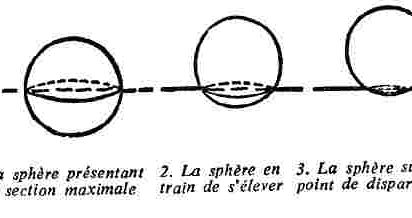A recent article in the Journal du Net refers to a well-known rule of academic business ethics: “If it’s not me, it’ll be someone else.” It was used here, not in relation to business life, but in relation to cheating on online exams. In this article, we discuss the logic of this rule and its moral consequence.
There is now a market for cheating on online exams (at least, it seems, in France). Teachers are ready to substitute themselves for students to take tests on the Internet. This service would of course be paid for. The French Journal du Net explains the means by which demand (from some students) and supply (from some teachers) can meet and lead to a “contractualisation.”
In the article, two teachers were asked why they accept such practices as they know that they violate their professional ethics – and, more broadly, the prescriptions of general morality. After offering justifications based on current circumstances, they quoted this formula:
(a) “If it’s not me, then it’ll be someone else.”
For the person who knowingly and freely acts immorally, this kind of impersonal formula has three “advantages.”
First, it exempts the perpetrator of the immoral act from describing it in a substantive way. In this case, cheating and contributing to the moral corruption of students is simply removed.
Second, the formula contains a form of generality. It does not say: (b) “If I don’t do it, anyone else will.” It merely observes that, (c) “If I don’t do it, there is at least one person who will do it for me.” But this existential quantification is misleading and insidious. The “it’ll be someone else” of formula (a) does not designate a closed and well-defined set. It suggests a universal quantification that allows the perpetrator of the immoral act to believe in an alleviation of his moral responsibility – or at least, the concept of belief being perhaps a little too demanding, to feel it.
Finally, formula (a) has the advantage that it is not context-specific. It can be applied to many situations. When companies offer lists of “grey zone rules” (sort of rules that allow and justify weakly immoral actions) in their code of conduct, they warn their employees of the dangers of applying them. These rules include “I can do it because everyone else is doing it,” “If it’s not against the law, it’s allowed,” “That’s the way it’s always been done,” “That’s the way the system works,” and, of course, our “If it’s not me, it’ll be someone else” formula.
While these rules may, as in the case of cheating in online exams, be put forward as justifications, they are also likely to be present in the deliberation that precedes action. If so, they encourage the immoral action. Formula (a) does this in two ways: it seduces with the “benefits” we discussed earlier and it avoids including moral elements in the deliberation that should be there. In the case of cheating on online exams, these moral elements include the violation of professional duties, the corruption of the values of others, and the corruption of one’s own values.
For a teacher to invoke such a rule – “If it’s not me, it’ll be someone else” – to justify immoral conduct is deeply dishonest. It would be less serious, from a moral perspective, to advance only arguments about circumstances, arguments with substantive content. But the impersonal nature of the rule allows those involved to artificially separate themselves from their actions, much in the way that a role may seem external to themselves.
However, it is not roles (that of the teacher who accepts cheating and that of the student who solicits it) that are dishonest in this case. It is the people themselves, the singular individuals. This adds to the inappropriateness and sinister nature of this type of justification.
Alain Anquetil
(1) “Frauder aux examens en ligne, simple comme une annonce sur Leboncoin,” Journal du Net, 23 February 2021.





